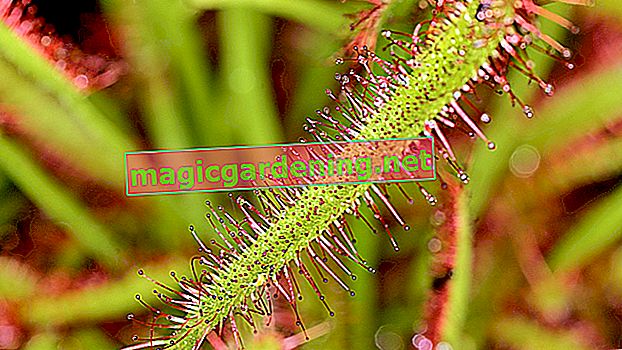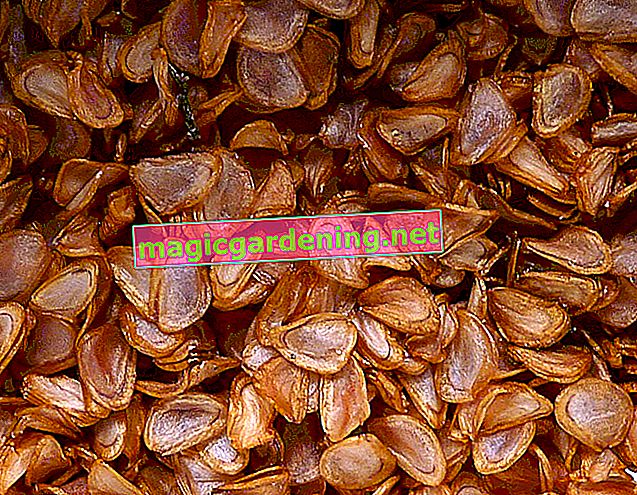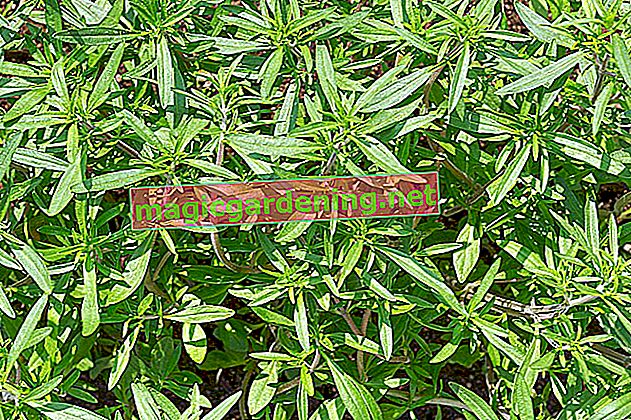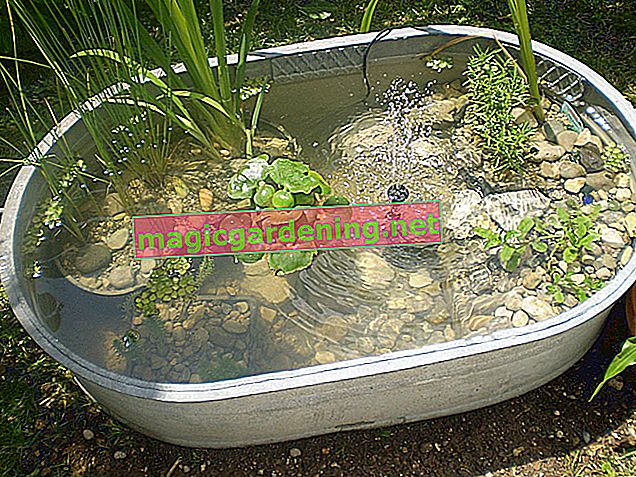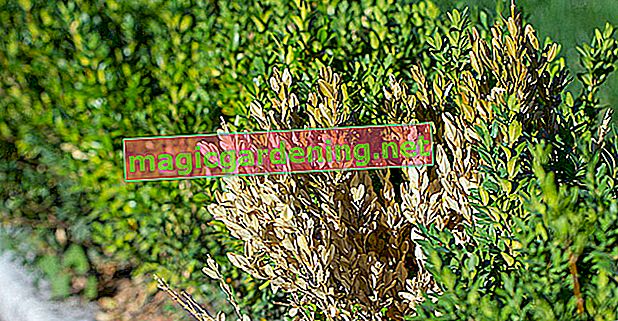
Maple wrinkled scab - recognize signs and treat them
One of the most common tree diseases on the maple is aptly named after the tree. The pathogens of Ahornrunzelschorf have specialized in the genus. Because of the unmistakable damage pattern, the infection is also referred to as tar spot disease. How to diagnose and combat the fungal attack:
- Shiny black, yellow-edged, slightly raised spots on living leaves
- Premature leaf fall in summer
- Control: in autumn collect all leaves, burn them or dispose of them in household waste
also read
- Common Sycamore Diseases - Tips for Combating
- Common diseases of Ficus benjamina - causes and symptoms
- Common diseases of corkscrew willow - tips for combating
By carefully removing the leaves and interrupting the development cycle of the fungal spores, your maple tree will be spared the disease in the following year.
Identifying and fighting red pustel mushrooms - this is how it works
The unmistakable fruiting bodies only reveal one of the most common tree diseases in autumn and winter. Long before that, the pathogens causing the red pustular disease had taken root in a maple tree that had been weakened due to incorrect maintenance. How to track down the fungal spores:
- Wilting leaves and drooping shoots in spring and summer
- Unusual discoloration of the bark with subsequent cancerous growths
- In the cold season of the year, pinhead-small, vermilion-red fruiting bodies appear
The pathogens have so far proven to be resistant to known fungicides. In field tests, tree disease experts found that cutting back into healthy wood deprives the fungal spores of their livelihood. The best time for the measure is on a mild, dry day between the beginning of September and mid-October.
Verticillium wilt - recognize symptoms and act correctly
For the fungi of the genus Verticillium, a maple is the most important host plant. Fatally, the pathogens penetrate the pathways through the soil, block the supply of water and nutrients, so that the affected maple tree is doomed. Since the disease is extremely contagious, we recommend clearing it immediately and replacing it afterwards. You can recognize Verticillium wilt by these symptoms:
- Twigs sprout normally in spring and show withered leaves out of the blue
- Previously firm, green leaves turn pale green and limp
- Ring-shaped, brown discolorations can be seen in cut, thicker branches
The partial appearance of the symptoms mentioned is typical for Verticillium wilt. While no signs can be seen in one region of the crown, other areas are gradually dying off. Based on this spread in places, the disease can be easily differentiated from frost damage, drought stress or waterlogging.
Tips
If you are worried about brown leaves on the maple tree, it is usually not a disease. If the brown discolouration begins at the leaf margins, the tree or shrub suffers from a location problem or care error. A windswept location triggers the damage as often as substrate that is too wet or too dry.


